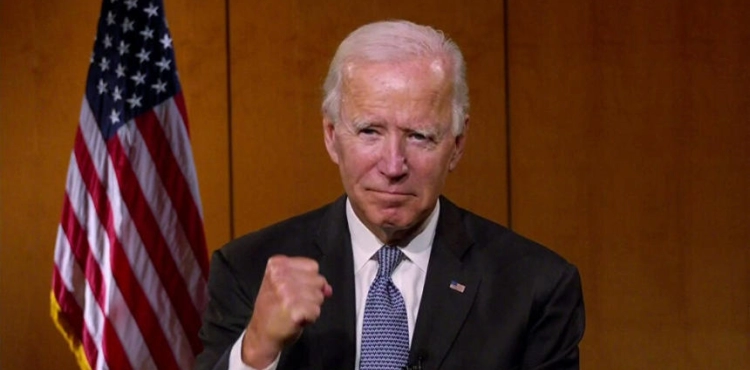Former Vice President and Democratic Party Candidate Joseph Biden, in the early hours of Saturday morning, November 7, 2020, crossed the threshold of 270 votes in the electoral college (Electoral College), according to Design Desk HQ It is an independent research center specialized in electoral counting and counting.
The center published on its website, "By surpassing the state of Pennsylvania and bypassing it by votes, the automatic margin for the recount. Joe Biden, the Democratic candidate, gets 273 votes in the electoral college, which qualifies him to become the next president of the United States of America."
However, the results have not been announced yet, despite the fact that President Donald Trump has a completely blocked road to winning a second round.
The entire world is still looking at the results of the US presidential election, with only a handful of states that have yet to finalize the final counting of votes.
Meanwhile, President Donald Trump has filed lawsuits over what he says are "incidents of fraud", calling for a recount in a number of states.
Trump has also filed a lawsuit alleging fraud in Nevada, one of the crucial states in which he trails Biden by a narrow margin, and in which the final outcome has not yet been decided.
Likewise, the Trump campaign has filed lawsuits in Michigan and Pennsylvania to demand a recount in the two states, and this makes the identity of the US presidential winner take weeks, according to the New York Times.
In some scenarios, the race to reach the White House may extend to 2021.
The Democratic candidate, Joe Biden, is still ahead of the current President Trump in the general electoral college votes, at a time when the counting of votes continues in 4 states.
In some states, such as Florida, Ohio, and Pennsylvania, the state initiates an automatic recount if the margin of the popular vote is close, while in other states such as Iowa and Nevada, candidates can request a recount regardless of the difference in the popular vote.
Disputes over whether election officials count too many votes or too few are leading to a flurry of litigation in both state and federal courts that may eventually find their way to the Supreme Court.
According to the US Constitution, states are required to appoint their electors before the Electoral College meets to formally cast their votes before Congress. The deadline for electing state voters to ensure their vote count will be December 8, 2020, and this is known as the "safe haven" date, while voters will meet in each state on December 14 to cast their votes.
However, some voters may choose to vote for a candidate other than the one produced by the popular vote, or even reject the vote entirely.
Nothing in the US Constitution compels major voters to vote in one direction or another. If some states force them to respect the results of the popular vote and refrain from doing so, the "dishonest" can be punished with a fine. But in 2020 the Supreme Court ruled that states can punish major voters who abstain from voting, by creating laws that compel them to vote based on the outcome of the popular vote in that state.
The newly elected Congress meets on January 6 to formally count the electoral votes and name the president. If there is no clear winner in the Electoral College, Congress will hold emergency elections.
And if the electoral college votes show that the two candidates are equal, or if no candidate gets a majority, the House of Representatives votes to choose the president, as each state’s delegation gets only one vote, so a candidate needs 26 votes to win the presidency.
The next president-elect will be sworn in at the White House on January 20, 2020.












